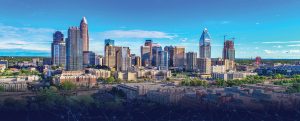Call for Sustainability
People worldwide are calling for more sustainable practices within every business sector. One highlighted industry is the fast-food sector, or Quick Service Restaurants (QSRs). There has been an elevated interest in protecting the environment, causing consumers to pay more for sustainable goods and services provided by environmentally responsible QSRs.
Sustainability in CRE 2023
According to Holland & Knight, achieving zero emissions building standards will be on top of the agenda for commercial real estate decision-makers in 2023. Simply using high-efficiency energy sources is insufficient for a building to meet the net-zero standard. It requires additional renewable energy generation, which may need to be produced off-site if the property has limited space for it, especially in densely populated cities.
This shift in priority comes from the growing proportion of clients indicating that sustainability is now their top priority. The pressure is on for CRE developers as renters increasingly seek spaces that match their sustainability requirements causing net zero buildings to achieve record rents.
The major goals for businesses in 2023 and beyond are to promptly and financially prudently achieve decarbonization goals.
An essential measure to achieve the net-zero building standard is to substitute fossil fuel-consuming technologies with those that use carbon pollution-free electricity (CFE). The U.S. General Services Administration (GSA) has identified various sources of CFE, including wind, solar, geothermal energy, and marine energy. Additionally, developers are pushing for more efficient, less risky, and accurate decision-making technology that will assist them in attaining their sustainability goals.
QSR Building Practices
Fast-food establishments have historically been some of the worst environmental polluters. Companies are collaborating with environmental initiatives to reduce their carbon footprint as the demand for more environmentally friendly fast-food options has grown globally.
According to the World Alliance for Buildings and Construction, developments worldwide contribute 40 percent of all energy-related CO2 emissions. This is essential to note since there are over 200,000 fast-food restaurants in the U.S. as of 2023, recorded by IBIS World.
Customers are becoming more conscious of construction and its environmental effects. Building sustainably is now a significant factor in helping increase customer interest and loyalty for QSRs.
Restaurants have implemented various sustainability measures to reduce their environmental impact and emissions:
- Implementing composting and recycling programs to reduce waste and divert it from landfills.
- Reducing water usage by installing low-flow faucets, using water-efficient dishwashers, and implementing water-saving practices in the kitchen.
- Switching to energy-efficient lighting, HVAC systems, and kitchen equipment to reduce energy consumption.
- Incorporating plant-based options into their menus to reduce the carbon footprint associated with meat production and provide healthier choices.
- Installing rooftop solar panels to generate renewable energy.
Leadership in Energy and Environmental Design, or LEED, is a unique certification provided by the U.S. Green Building Council (USGBC) that denotes “quality and achievement in green building.” The program is the most utilized globally for green building certification and offers distinct certifications for various building types, including new construction and restored spaces. LEED certification is obtained by earning points by meeting prerequisites and credits focusing on various areas, including carbon, energy, water, waste, transportation, materials, health, and indoor environmental quality. The process involves a review and verification by GBCI, and the number of points earned corresponds to the level of LEED certification achieved, which includes Certified (40-49 points), Silver (50-59 points), Gold (60-79 points), and Platinum (80+ points). Roughly 300 restaurants or food service establishments have been through the certification process. One of which is KFC, a brand that has 30 LEED-certified restaurants across the globe, according to QSR Magazine. Buildings with these certifications can have up to 30 percent savings in energy and water use, making these restaurants much more attractive to consumers who prioritize sustainability.
Other QSR Brands Promoting Sustainability
Specific objectives have been set to conserve water, safeguard forests and natural resources, and select sustainable supplier chains. Also, by employing recycled or repurposed materials to complete the project, QSRs can lower the number of durable goods that end up in landfills.
These are some of the top QSR brands that have led the sustainable building movement:
- McDonald’s announced in 2018 that it aimed to reduce at least 36 percent of emissions by 2030 by implementing water-saving features in buildings across the globe.
- KFC has numerous LEED-certified restaurants and continuously implements changes to promote building sustainability and conservation. A new global commitment the franchisees have made is making all plastic-based, consumer-facing packaging recoverable or reusable by 2025.
- Chick-fil-A has made an effort to make its restaurants more ecologically friendly by actively composting and changing the way each building is constructed.
- Starbucks has begun building more eco-conscious, water- and energy-efficient stores while also using responsible materials.
Takeaways
QSRs of all sizes can make a change by implementing sustainable business and building methods. Due to consumer desire for eco-friendly items, restaurant owners and managers have significant potential. They can actively participate in the movement while drawing in more consumers actively searching for sustainable businesses to give their money to. Restaurant owners can take advantage of sustainability trends and advertise the outcomes of their work to boost customer loyalty to their companies.









